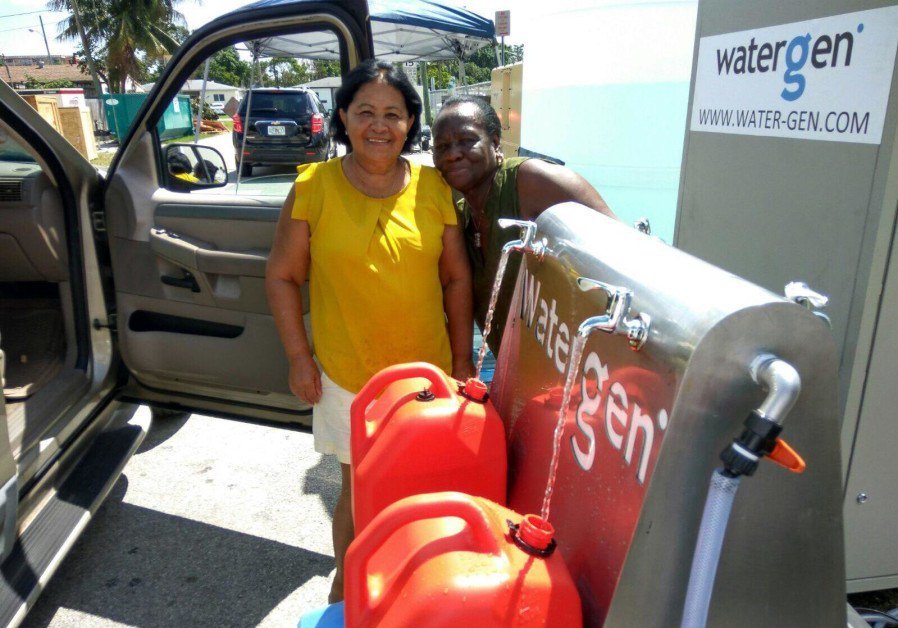WATERGEN PARTNERS WITH FLINT, MICHIGAN WHERE WATER QUALITY IS ‘THIRD-WORLD’

Israel’s Watergen just launched a new partnership with the community of Flint, Michigan, providing what could be the first large scale solution for drinking water by placing a 350 unit in the community church. If successful, it could be a model for similar towns.
As opposed to bringing in plastics that are associated with trucking in water bottles, Watergen, uses a dehumidification apparatus to create water out of thin air.
“For the past five years, there have been solutions promised to the community by many, yet no one has delivered an affordable solution that is good for the people and for the environment by reducing plastics,” said Armstrong Williams, a nationally syndicated talk show host, who partnered with WatergenUSA and NBC25 to bring the Watergen solution. “When I saw the Watergen unit I immediately started working with the company to bring this technology to Flint.”
The unit was placed in the community church, Greater Flint Holy Temple.
“Now we need to make certain that every school in Flint has this solution and we cannot allow the children’s health to be compromised,” Armstrong continued. “The people of Flint have now given their community and government leadership a solution to make certain the right options are implemented for the safety of their children.”
WatergenUSA president Yehuda Kaploun said the company’s solution will be the “wave of the future” for communities around the world in need of clean water.
Watergen was recently named the winner of the Bill Ford Better World Challenge to provide clean drinking water in Capetown, South Africa, and is producing fresh and safe drinking water to thousands of residents in the province. This is servicing some 3,400 households, as well as dozens of early childhood development centers and schools.
“Watergen provides the cleanest, safest water, and it comes from the air we breathe,” said WatergenUSA CEO Ed Russo. “A great innovation and a great solution.”
Watergen’s technology has already been implemented in over 25 countries, including Vietnam, Mexico and Sierra Leone.
Kaploun said that one of the striking challenges is that in communities like Flint, the water quality is the same as it might be in a third-world country.
“Unhealthy water will harm somebody either way,” he said.
Kaploun said water problems are continuing to grow “worldwide” and that people are becoming more aware of the products the Watergen is able to provide. For example, in emergencies, where water was unavailable or contaminated, Watergen was able to provide clean drinking water to victims of Hurricane Harvey, Irma and Michael. The technology also aided Cape Town, South Africa, during their water crisis that began in 2017.
“It’s absolutely all over the world,” he said.
He thinks Watergen has the potential to be one of the largest companies on the planet within the next 10 years.
“As the use of plastic is becoming banned in more countries, I think you’re going to see Watergen step in and fill that void,” he said, describing a hypothetical situation where a university campus only relies on Watergen machines.
Watergen was founded in 2009 by Arye Kohavi. The technology was originally designed to provide water to soldiers in arid conditions where water is scarce. Its products range from smaller home or office appliances to large-scale, industrial units capable of generating 5,000 liters of water each day.
Read more: The Jerusalem Post
